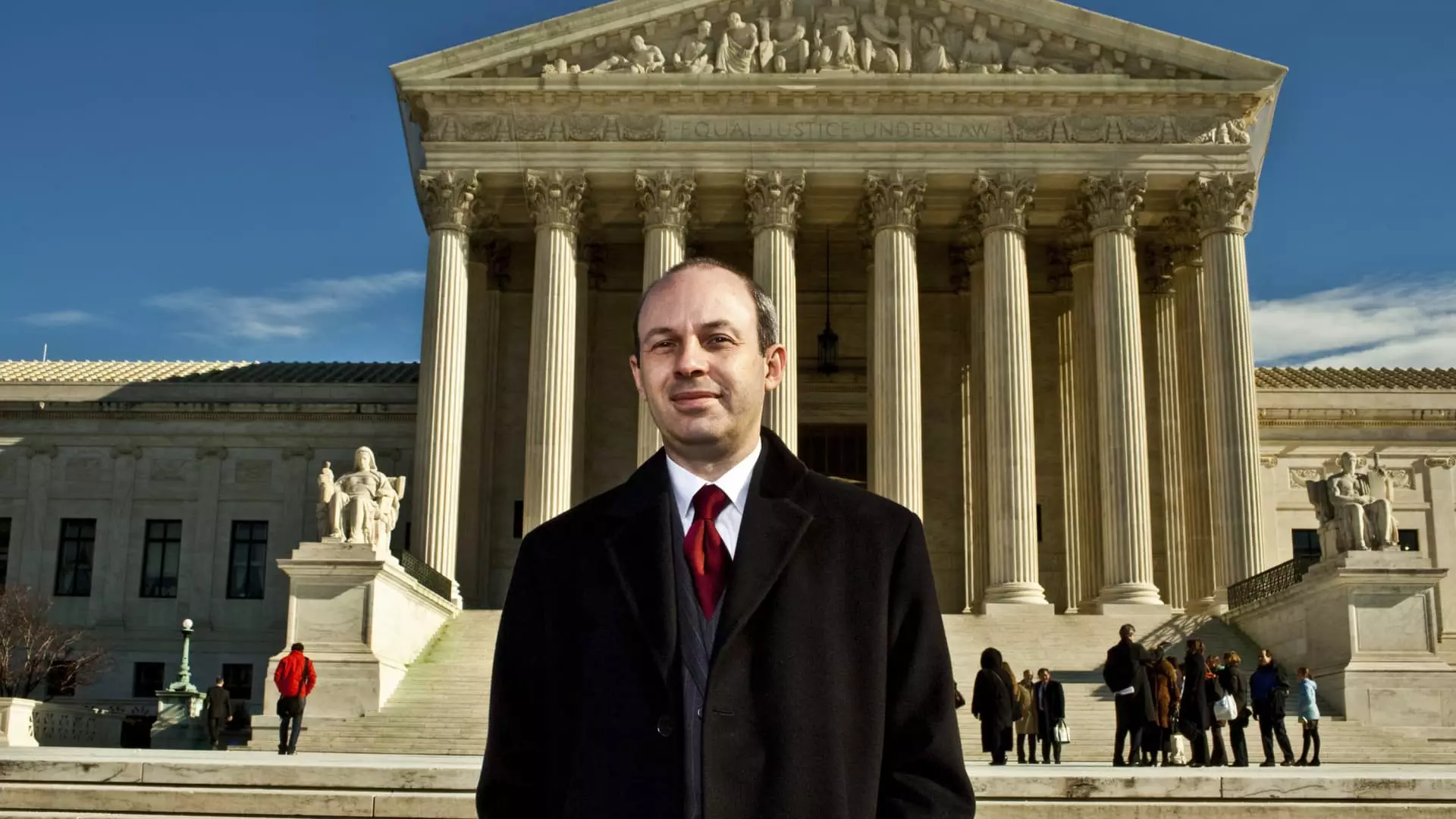In a striking development within the legal realm, prominent Supreme Court lawyer Tom Goldstein has found himself embroiled in a deepening controversy leading to his recent arrest. The decision was rendered by a federal judge who deemed Goldstein a significant flight risk, particularly given his precarious situation pending criminal tax evasion charges. The federal prosecutors’ allegations painted a picture of Goldstein not only failing to comply with the terms of his release but engaging in suspicious financial transactions that could potentially compromise the integrity of witness testimony in his case. Given Goldstein’s prestigious reputation — notably as the publisher of SCOTUSblog and a leading figure in numerous Supreme Court arguments — the gravity of his predicament is perhaps magnified in public perception.
A central element of this case revolves around Goldstein’s undisclosed control over two cryptocurrency wallets, through which he reportedly received an astounding $8 million in a single week. The rapid transfer of funds — upwards of $6 million — from these accounts raised red flags for prosecutors, who argued that Goldstein’s actions could indicate an attempt to obscure ill-gotten gains. The unfolding narrative underscores a broader concern regarding cryptocurrency as an emerging tool for financial manipulation. In a world where digital currencies provide anonymity and ease of transaction, it is becoming increasingly difficult for regulatory bodies to track illicit financial activities, which could undermine existing legal frameworks designed to combat tax evasion and fraud.
Compounding the seriousness of the charges against Goldstein, prosecutors revealed that he allegedly attempted to influence a potential witness connected to the ongoing investigation. Reports indicate that Goldstein offered “things of value,” including cryptocurrency, to an individual who possessed in-depth knowledge about his financial dealings. This revelation is troubling not only for the case at hand but for the integrity of the judicial process overall. If such tactics are employed by individuals at the pinnacle of the legal profession, it raises significant questions about the lengths to which others might go to manipulate outcomes in their favor, ultimately undermining public trust in the justice system.
During a bail hearing, Goldstein vehemently denied any connection to the cryptocurrency accounts in question, asserting, “These are not my accounts,” and pleading ignorance regarding the transactions carried out. Nonetheless, Chief Magistrate Judge Timothy Sullivan responded decisively, stating that there exists “clear and convincing evidence” of violations that warranted his detention without bail. The ruling highlighted the court’s stern approach to potential flight risks, particularly in high-stakes situations such as this. Sullivan emphasized that the conditions needed to ensure Goldstein’s compliance were unattainable, showcasing the court’s resolve to maintain the integrity of the legal process.
Goldstein’s case exemplifies a growing societal concern regarding accountability at the highest levels. The dual issues of tax evasion and financial secrecy are not confined to the legal elite but resonate through various strata of society. With an increasing number of individuals and corporations attempting to navigate tax obligations through opaque strategies, the urgency for systemic reform has never been more apparent. Policymakers and legal advocates are called to consider how existing laws can adapt to the complexities posed by new financial technologies such as cryptocurrencies, ensuring that both the letter and intent of the law hold individuals accountable regardless of their status.
As Tom Goldstein’s case unfolds, it serves as a poignant reminder of the fragility of reputations and the serious consequences that accompany violations of trust and the law. Beyond the immediate trial, the implications of this high-profile case may set precedents that impact similar financial misconduct cases in the future. Whether it contributes to meaningful reform in how financial transactions are monitored or simply highlights the pitfalls inherent in emerging digital currencies remains to be seen. However, one thing is evident: the realm of legal ethics, financial accountability, and personal responsibility will remain critical focal points as we navigate the complexities of modern finance.


Leave a Reply